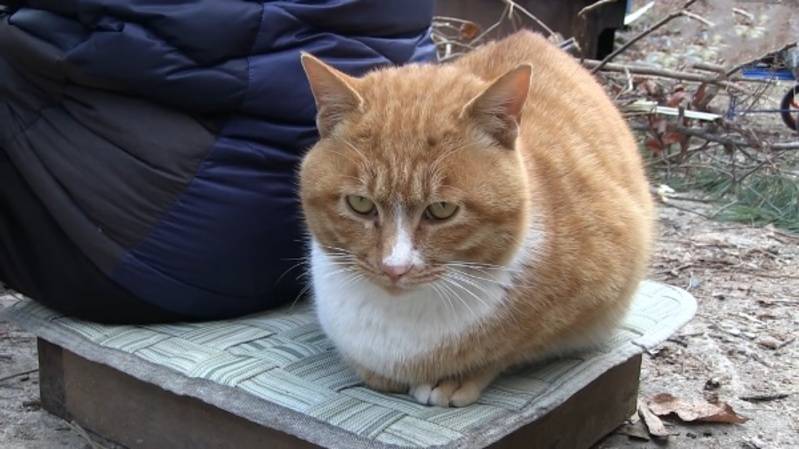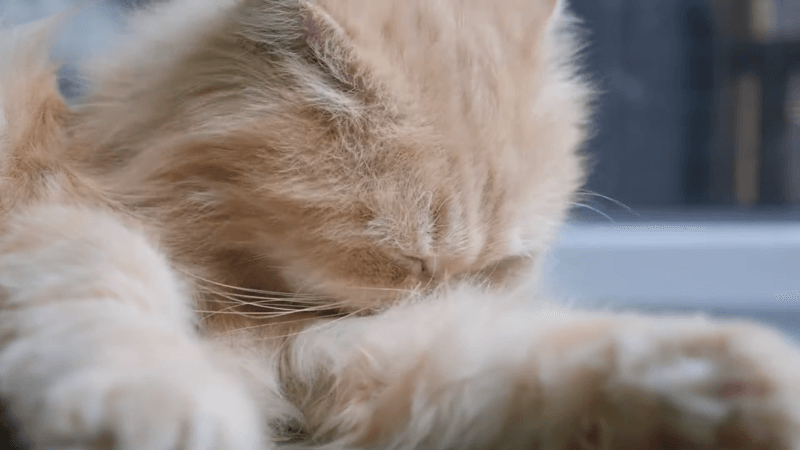No products in the cart.
In recent years, the popularity of CBD oil as a potential remedy for various health concerns in pets, including anxiety, has soared and there is a question showing up in everyone’s mind Can CBD oil help cats with anxiety? This question has ignited curiosity among pet owners who are seeking natural and holistic approaches to support their cats’ emotional well-being.
In this blog, we will discover why is my cat so anxious, how to help an anxious cat, the potential benefits of CBD for addressing feline anxiety, and can cats have separation anxiety.
Can CBD Oil Help Cats With Anxiety?
CBD oil for cats has gained attention as a potential solution for managing anxiety in cats. While research is still ongoing, some anecdotal evidence suggests that CBD may have a calming effect on cats by interacting with receptors associated with mood regulation. However, it’s important to consult with your veterinarian before using CBD for your cat’s anxiety to ensure safety and appropriate dosage. Every cat is unique, and a veterinarian can provide guidance tailored to your cat’s individual needs and circumstances.
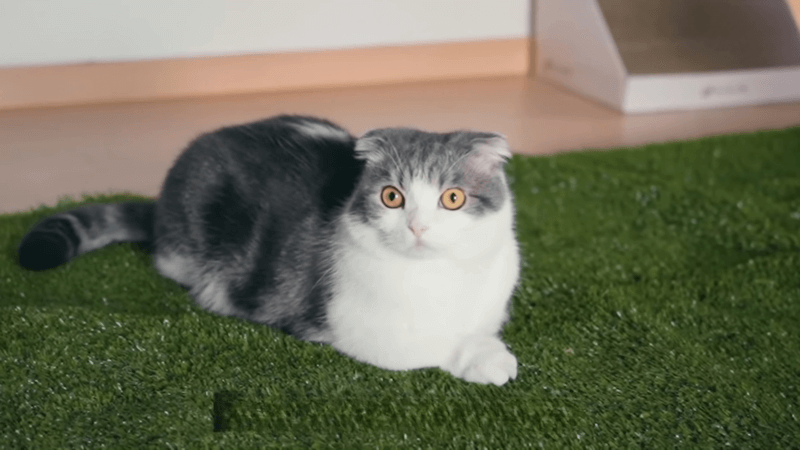
Benefits of CBD for Kitties’ Anxiety
- Calming Effect: CBD oil for cats interacts with receptors in the brain that are associated with mood regulation, potentially reducing anxiety-related behaviors in cats.
- Stress Reduction: CBD may help lower stress levels by modulating the release of stress hormones, leading to a more relaxed state.
- Improved Sleep: Anxiety can disrupt a cat’s sleep patterns. CBD’s calming properties might promote better sleep quality and duration.
- Anti-Inflammatory Properties: Inflammation is linked to anxiety and stress. CBD’s anti-inflammatory effects could contribute to overall emotional well-being.
- Non-Sedative: Unlike some prescription medications, CBD generally doesn’t cause sedation or lethargy in cats, allowing them to remain alert and engaged.
- Natural Approach: Many cat owners are drawn to CBD due to its natural origin. It offers an alternative to pharmaceutical options with potentially fewer side effects.
CBD Products Available for Cats
- CBD Oil/Tinctures: These are liquid extracts of CBD that can be administered orally. They allow for precise dosing and are often mixed with a cat’s food.
- CBD Treats: CBD-infused treats come in various flavors, making them a convenient way to administer CBD while rewarding your cat.
- CBD Capsules: Similar to treats, capsules offer a measured dose of CBD. They can be hidden in food or treats if your cat is comfortable with swallowing pills.
- CBD Topicals: While less common, CBD creams or balms can be applied to a specific area of your cat’s skin. This could be useful for targeting localized stress or anxiety.
- CBD Isolates: These are pure CBD products that contain no other compounds from the cannabis plant. Isolates can be mixed with a carrier oil or added to treats.
Tips on How to Help an Anxious Cat
Caring for an anxious cat requires a combination of understanding, patience, and proactive strategies to create a comforting environment. By addressing their needs and providing appropriate outlets for their energy, you can help alleviate their anxiety and promote a sense of security.
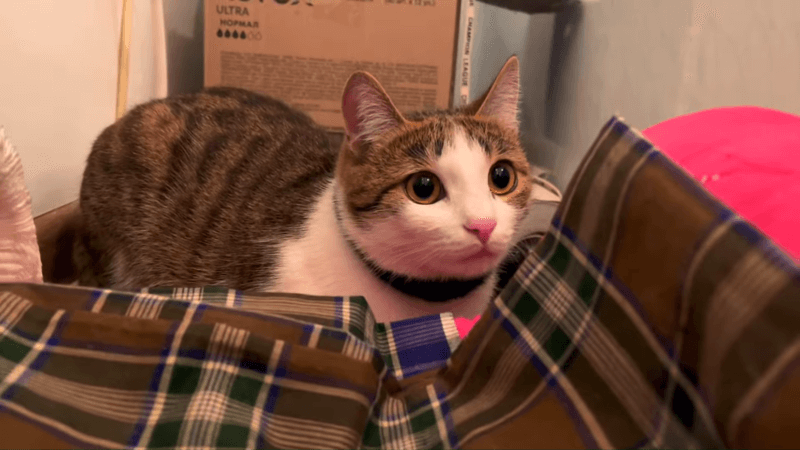
Importance of a Safe and Soothing Space
Creating a safe and soothing space is crucial for helping an anxious cat feel secure. Here’s how you can achieve this:
- Quiet Retreat: Designate a quiet corner or room where your cat can retreat to when feeling stressed. This space should be away from high-traffic areas and noise.
- Cozy Hideaways: Provide cozy hiding spots such as covered beds, boxes, or cat condos. These hiding spots mimic the feeling of being in a secure den.
- Vertical Spaces: Cats feel safer when they have vertical spaces to explore, like cat trees or shelves. These spaces also allow them to observe their surroundings without feeling exposed.
- Calming Scents: Use pheromone diffusers that release feline facial pheromones to create a reassuring environment. These pheromones mimic the natural scent that cats release when they rub their faces on surfaces.
The Role of Interactive Toys
Interactive toys can be incredibly beneficial for helping anxious cats by engaging their minds and providing outlets for physical activity. These toys not only distract cats from stressors but also stimulate their natural instincts.
- Puzzle Feeders: Puzzle feeders dispense treats or kibble as cats manipulate the toy. This engages their hunting instincts and keeps them mentally stimulated.
- Feather Wands: Feather toys attached to wands allow you to simulate prey-like movements, encouraging play and exercise.
- Interactive Laser Pointers: Cats love chasing laser pointer lights. Just make sure to end the play session with a physical toy to give them a sense of achievement.
- Automated Toys: Battery-operated toys that move unpredictably can keep your cat entertained even when you’re not around. Some even mimic the movement of small animals.
- Playtime Routine: Establish a consistent playtime routine. Engaging in interactive play sessions with your cat can help build a stronger bond and relieve anxiety.
- Rotate Toys: Introduce new toys and rotate them regularly to keep your cat’s interest piqued. This prevents boredom and ensures they have a variety of stimulating options.
Can Cats Have Separation Anxiety?
Yes, cats can indeed experience separation anxiety, a condition in which they become distressed when separated from their human caregivers. While it’s more commonly associated with dogs, many cat owners have observed behaviors that suggest separation anxiety in their feline companions. Understanding the signs and causes of separation anxiety in cats is essential for providing appropriate support.
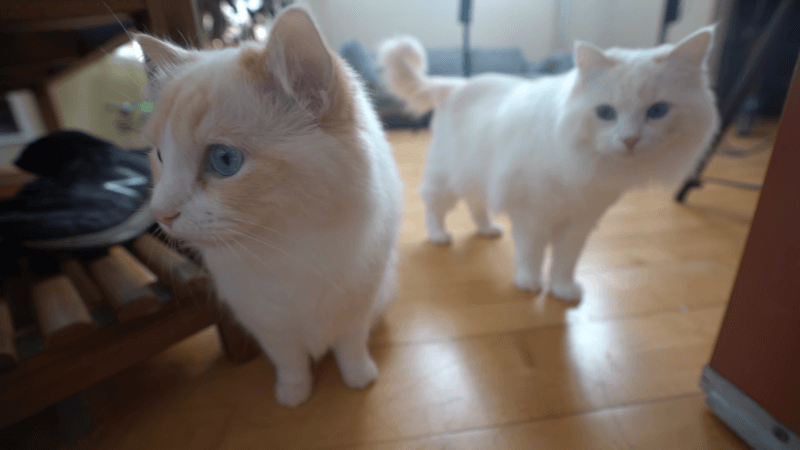
Social and Environmental Factors
Cats are often perceived as independent animals, but they can still form strong attachments to their human caregivers and their home environment. Social and environmental factors that can contribute to separation anxiety in cats include:
- Bonding with Caregivers: Cats that have developed close bonds with their human caregivers can experience distress when separated from them.
- Routine and Familiarity: Cats are creatures of habit. Changes in routine or a sudden absence of familiar routines can trigger anxiety.
- Lack of Socialization: Cats that haven’t been adequately socialized during their early life stages might feel anxious around people or other animals, leading to separation anxiety when left alone.
- Loneliness: Cats that are left alone for extended periods without sufficient mental and physical stimulation might experience loneliness and anxiety.
Separation Anxiety Behaviors in Cats
Recognizing separation anxiety in cats involves observing their behavior when you’re about to leave, during your absence, and when you return. Common signs of separation anxiety in cats include:
- Excessive Vocalization: Cats may meow, yowl, or cry more than usual when you’re getting ready to leave or when you’re gone.
- Destructive Behavior: Anxious cats might engage in destructive behavior, such as scratching furniture, chewing on objects, or knocking things over.
- Inappropriate Elimination: Cats with separation anxiety might urinate or defecate outside the litter box, often near doors or windows.
- Excessive Grooming: Stress can lead to overgrooming, resulting in hair loss and skin issues.
- Hiding: Cats might hide or become more reclusive when anticipating or experiencing your absence.
- Pacing or Restlessness: Some cats may pace around the house or exhibit signs of restlessness when they’re anxious.
- Loss of Appetite: Anxiety can lead to changes in eating habits, causing a cat to lose interest in food.
Conclusion
Can CBD oil help cats with anxiety? This is a very important question among pet parents using CBD as a treatment for cats’ anxiety. While research is ongoing, its interaction with mood-regulating receptors offers a promising avenue for promoting a sense of calm and well-being. Before integrating CBD into your cat’s routine, consulting with a veterinarian is essential to ensure safety and appropriate usage. Additionally, creating a comforting environment and utilizing interactive toys can further contribute to alleviating anxiety and enhancing your cat’s overall quality of life.
I am Nelson Cooper, I pursue my passion for writing and my belief is that cats love humans. I enjoy traveling and have a deep appreciation for the beauty of nature, as well as a soft spot for animals, particularly cats.


